|
|
|
INFORMATION ABOUT UFA
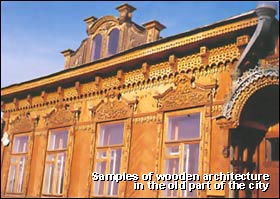 Ufa is the capital of multinational sovereign Bashkortostan within the Russian Federation. The city lies approximately 60 miles West of the ancients Ural Mountain ridges. Major industrial cities such as Samara, Kazan, Yekaterinburg, Chelyabinsk, Orenburg are located in the immediate vicinity of Ufa. The capital of Bashkortostan lies upon a peninsula of sorts, occupying an elevated plateau encompassed from the three sides by the Aghidel (the Belaya), the Ufa and the Dyoma rivers. As in the whole of the Urals, the climate here is continental, but somewhat milder than in Yekaterinburg and Perm. Winters are normally snowy and cold (average January temperature is 5 F) and summers are hot (up to 65 F in June).
Ufa is the capital of multinational sovereign Bashkortostan within the Russian Federation. The city lies approximately 60 miles West of the ancients Ural Mountain ridges. Major industrial cities such as Samara, Kazan, Yekaterinburg, Chelyabinsk, Orenburg are located in the immediate vicinity of Ufa. The capital of Bashkortostan lies upon a peninsula of sorts, occupying an elevated plateau encompassed from the three sides by the Aghidel (the Belaya), the Ufa and the Dyoma rivers. As in the whole of the Urals, the climate here is continental, but somewhat milder than in Yekaterinburg and Perm. Winters are normally snowy and cold (average January temperature is 5 F) and summers are hot (up to 65 F in June).
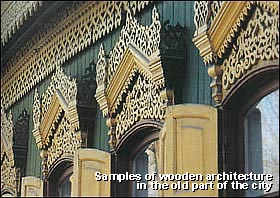 The beauty of this land was noticed by people of the ancient past. Archaeologists have discovered remains of the primitive man settlements of the site of the present-day city.
The beauty of this land was noticed by people of the ancient past. Archaeologists have discovered remains of the primitive man settlements of the site of the present-day city.
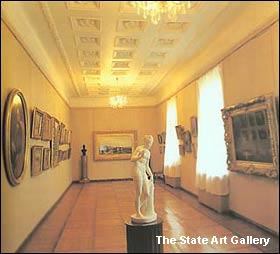 Following the collapse of the Kazan Khanate, Bashkiria voluntarily joined the Muscovite Russian State, the Bashkirs approaching Tsar Ivan the Terrible with a request to construct a fortress to protect the land. In summer 1574, a detachment of Russian streltsi (privileged military corps) laid the foundation of a fortress on the high right bank of the Aghidel river. The fortress started to be called “Ufa”, most probably, derived from ancient Turkish “ufak”, meaning “small”.
Following the collapse of the Kazan Khanate, Bashkiria voluntarily joined the Muscovite Russian State, the Bashkirs approaching Tsar Ivan the Terrible with a request to construct a fortress to protect the land. In summer 1574, a detachment of Russian streltsi (privileged military corps) laid the foundation of a fortress on the high right bank of the Aghidel river. The fortress started to be called “Ufa”, most probably, derived from ancient Turkish “ufak”, meaning “small”.
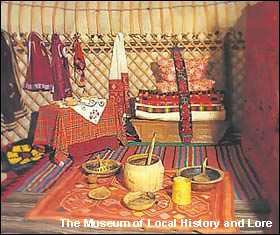 During the World War Two Ufa experienced a rapid growth of population. More than 100,000 people were evacuated to Ufa from the occupied areas. The residents of Ufa shared their own homes with the evacuees. In 1941-42 more than 40 industrial enterprises were shifted to Ufa. Along with these local factories and plants were working to meet the war requirements. During the war years Ufa became one of the major cities with a multi-industrial economy.
During the World War Two Ufa experienced a rapid growth of population. More than 100,000 people were evacuated to Ufa from the occupied areas. The residents of Ufa shared their own homes with the evacuees. In 1941-42 more than 40 industrial enterprises were shifted to Ufa. Along with these local factories and plants were working to meet the war requirements. During the war years Ufa became one of the major cities with a multi-industrial economy.
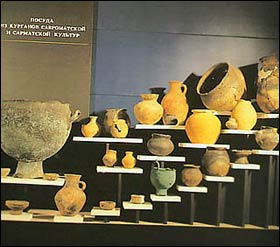 During 1941-43 the city sent 88,952 soldiers to the Red Army. A Monument in Ufa’s Victory Park is devoted to Heroes of the Soviet Union Alexander Matrosov and Minigali Gubidullin who covered the enemy’s embrasures with their own bodies.
During 1941-43 the city sent 88,952 soldiers to the Red Army. A Monument in Ufa’s Victory Park is devoted to Heroes of the Soviet Union Alexander Matrosov and Minigali Gubidullin who covered the enemy’s embrasures with their own bodies.
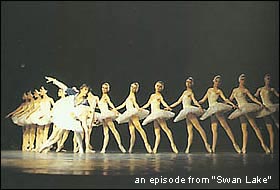 The city of today consists of a number of detached districts, stretching from SW to NE for more than 30 miles, occupying the area of approximately 180 sq. miles. The population of the city if over 1,100,000 people. The largest ethnical groups include Russians (55,5%), Bashkirians (10,7%) and Tatars (27,9%).
The city of today consists of a number of detached districts, stretching from SW to NE for more than 30 miles, occupying the area of approximately 180 sq. miles. The population of the city if over 1,100,000 people. The largest ethnical groups include Russians (55,5%), Bashkirians (10,7%) and Tatars (27,9%).
Ufa is a cultural city. 1938 was the date of birth of the Bashkir State Opera and Ballet House, the repertoire of which was classical works by Tchaikovsky, Verdi, Gounod, Bizet. In the historical center of the city there is the State Art Callery named after M.V. Nesterov (1862-1942), the outstanding Russian painter who spent his early years in Ufa. In the 1920s he donated a collection of his works and those by the masters of the second half of the 19th century to the city.
The Museum of Archeology and Ethnography exhibits valuable finds, collected by scientists during their field excavations, including a collection of jewelry numbering about 600 gold and silver items, characteristic of the Sarmat culture of the 5th-3rd centuries BC.
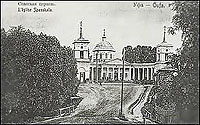
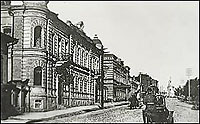

The Sarmat gold
| Romance Tours |
 Russian Women Tours Russian Women Tours
 Latin Women Tours Latin Women Tours
 Peru, Latin Women Tours Peru, Latin Women Tours
 Costa Rica, Latin Women Tours Costa Rica, Latin Women Tours
|
 Ukraine Women Tours Ukraine Women Tours
 Thailand, Asian Women Tours Thailand, Asian Women Tours
 Philippines, Asian Women Tours Philippines, Asian Women Tours
 Multiple Cities Women Tours Multiple Cities Women Tours
|
| |
Discover why more Romance Tour clients place their trust in A Foreign Affair each and every year than any other tour agency!
Now have all your Romance Tour questions answered by one of our Tour Representatives 7 days a week, from 9AM to 9PM MST, by calling our Tour Info line at (602) 332-7805

|
Cobrand SYSTEMS
7320 N Dreamy Draw Drive
Phoenix, Arizona 85020
(602) 553-8178
FAX (602) 468-1119
Contact Us
|
|
THIS PROGRAM IS THE SOLE PROPERTY OF COBRAND SYSTEMS AND MAY NOT BE COPIED IN ANY WAY OR FORM WITHOUT EXPRESS PERMISSION FROM COBRAND SYSTEMS.
© COPYRIGHT 1996-2025 - ALL RIGHTS RESERVED.
|
|
| |